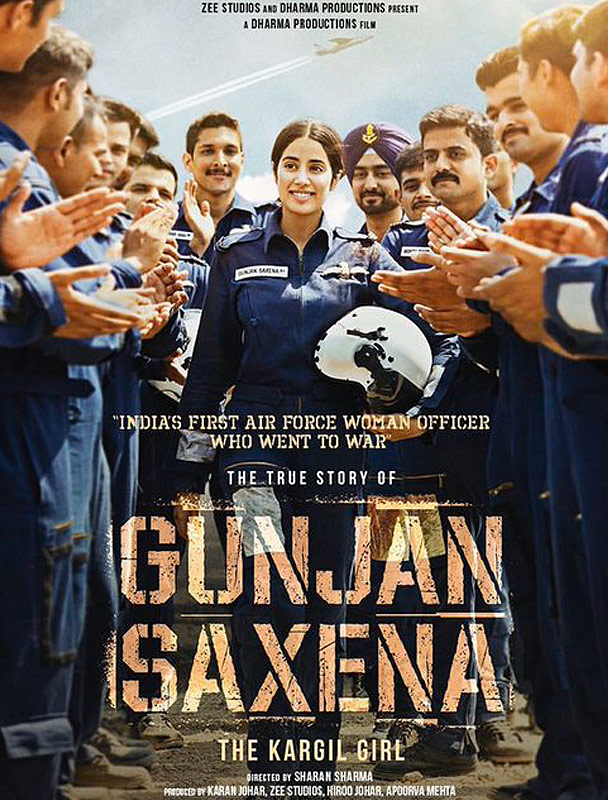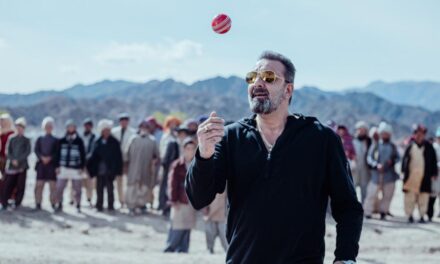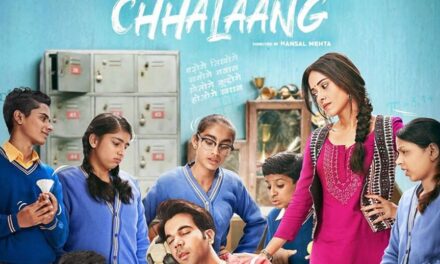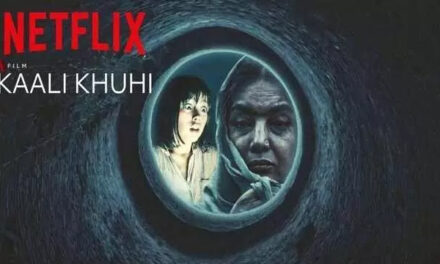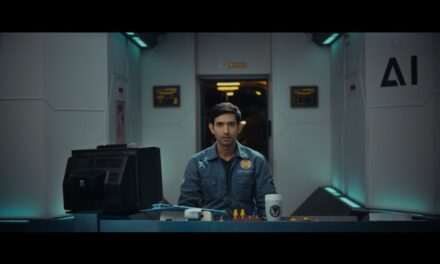Director: Sharan Sharma
Cast: Janhvi Kapoor, Pankaj Tripathi
Gunjan Saxena: The Kargil Girl, the much-awaited biopic starring Janhvi Kapoor has released directly on Netflix.
This film is based on the life of Flight Lieutenant Gunjan Saxena, who created history by becoming the first Indian woman to fly in a combat zone. And as trivia goes, she apparently dismissed director Sharan Sharma’s initial calls to her to acquire filmmaking rights as a prank!
I am not surprised by Bollywood’s recent efforts to embrace the bio-pic genre with more vigour. I’ve always felt there was big opportunity in this space, especially in a country like India where many inspiring stories often go untold. I’m happy that Gunjan Saxena’s didn’t ‘slip under the radar’.
One of my favourite scenes from the film is when Gunjan (Janhvi Kapoor) asks her father, also an ex-army man (Anup Saxena, played by Pankaj Tripathi) a candid question. She asks him if she would have to be a passionate patriot to join the Air-Force. Would it be a dis-service to the country if she were not and joined only to feed her own love for aviation?
It is a pertinent question in a film that aptly released during Independence Day week. It is also important to note, that a large part of the film is set in the late eighties and nineties. Many things we take for granted today were still considered disruptive at the time.
We first meet Gunjan as a young child, for whom a chance visit into the cockpit of an airplane (don’t we all crave for this) triggers an indelible passion for aviation. She wants to become a pilot, but her best shot at a career in the skies is to try and become an air hostess, she hears. This first taste of misogyny is served to her by her own elder brother.
Years pass and as she grows into a lanky teenager, her passion only grows stronger. But there are also more hurdles. Apart from recurring misogynistic bytes, there are also financial constraints and stringent physical norms of the IAF. Through all this, only her father stays a firm pillar of support. In this journey filled with turbulence, he acts as her trusted ‘air traffic controller’ from the ground.
The writing is quite sharp in every scene. The dialogues match the emotional depth and the conflicts are authentic and beautifully segued. Like with any good script, the screenplay is dotted with ‘false wins’ that keep us on the edge and egging the protagonist on. There is no bigger one, than when she actually gets admitted into an IAF base camp in Udhampur.
If Gunjan thought she’d faced misogyny and conquered it, she would now face all that again at a scale she’d never witnessed before. They’ve never had a woman officer at the base and guess what, they don’t have a Women’s restroom or even a change-room yet. Gunjan becomes the subject of many running jokes, and literally no-one wants to fly out on training sorties with her. Her immediate boss is a jerk. She is basically not welcome there and the whole place is a cauldron boiling with toxic masculinity.
The writers have laid this situation bare, and we witness these scenes for what they are. There are no palliative touches (there has been some controversy, with the IAF writing to the CBFC complaining about an exaggerated portrayal of these sequences).
We see Gunjan driven to the point of breaking and quitting and we feel for her. Though extremely ambitious, she is also young, delicate and vulnerable and Janhvi Kapoor pulls this portrayal off very convincingly.
She gets her break as the film enters its final act, set against the backdrop of the Kargil war. These scenes, especially the ones shot aerially are quite breathtaking (Manush Nandan is the DOP) and the superb edits by Nitin Baid are pacy and get the adrenaline pumping, leading up to a stirring climax. The action choreography is top notch throughout and does complete justice to the genre and backdrop (Vikram Dahiya handles this department expertly).
Gunjan Saxena is ultimately a film that really stands out, for its authoritative writing and technical brilliance. As mentioned before, many of these scenes have to be viewed in the context of the time period in which the film is set. Having said that, it is people like Gunjan who have pioneered change since, and this process is even now ongoing. As India nears the seventy fifth year milestone post-independence, we must all take cue and strive to ensure the country flies high above patriarchy, misogyny and toxic masculinity in all walks of society.
Overall rating: 3.5/5

